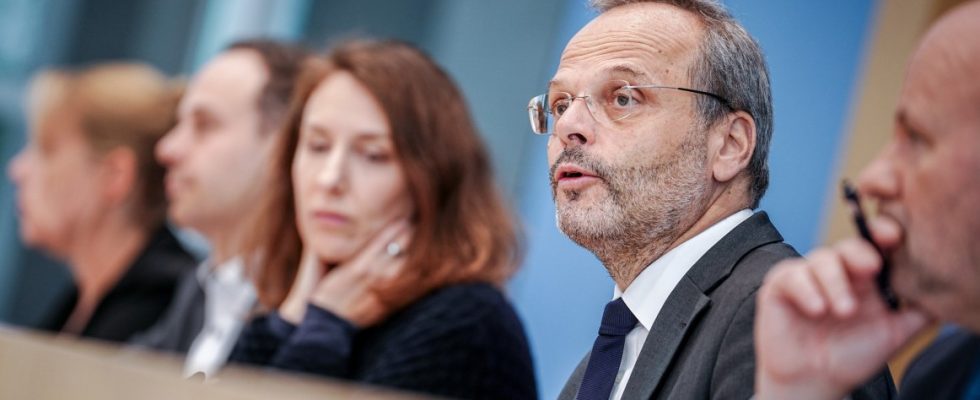Before the 85th anniversary of the anti-Jewish pogroms of November 9, 1938, the Federal Government’s anti-Semitism commissioner, Felix Klein, expressed his dismay at the current situation in the country. “What we have seen since October 7th is hatred of Jews at a level that has not been seen in Germany for decades,” he said on Tuesday in Berlin, referring to anti-Semitic incidents, for example during demonstrations after the terrorist attack on Israel by the Islamist Hamas. The occasion was the presentation of a “civil society situation report on anti-Semitism” created by the Amadeu Antonio Foundation. The focus is on anti-Semitism from the right and attacks on memorials and places of remembrance.
At the joint press conference with Klein, experts warned against losing sight of this problem in view of the current incidents. The aim of the extreme right is to rewrite German history. “Places of commemoration and remembrance are being desecrated and destroyed. Attempts are being made to make it more difficult or to prevent remembering the time of National Socialism,” it says in the 24-page paper. These attacks are to blame for the fact that the culture of remembrance in Germany is cracking.
The consensus of memory of the Nazi era is more fragile than it has been for a long time
The anti-Semitism commissioner criticized Germany for having rested for too long and praised itself for its culture of remembrance. Knowledge about the Holocaust has to be developed again and again. The current focus on anti-Semitism among Muslims should not distract from anti-Semitism among the population, said right-wing extremism researcher Beate Küpper. Deborah Hartmann, director of the Haus der Wannsee Conference memorial and educational center, warned that the “defense against memory” had long since migrated from the right-wing fringe to the bourgeois center. “So we can by no means speak of a cultural memory consensus. In large parts of society, this is more fragile than it has been for a long time.”
Jews in Germany have been in a state of emergency for a month, said Klein, referring to the current situation. Later he assured: But it is not the year 1938. “The poison of anti-Semitism still exists, it is particularly evident now. But in 2023 we live in a stable democracy with a constitutional state that protects itself and defended.”
According to various estimates, between 400 and 1,300 people were murdered or driven to suicide during the pogroms between November 7th and 13th, 1938 in what was then the Reich. More than 1,400 synagogues, prayer rooms and other meeting rooms as well as thousands of shops, apartments and Jewish cemeteries were destroyed. Around 30,000 Jews were deported to concentration camps.
The Federal President explains the limits of freedom of assembly
These November pogroms will be remembered in many places in Berlin on Thursday. The central memorial event will take place in the morning in the synagogue on Brunnenstrasse that was attacked shortly after the Middle East conflict flared up again. The Central Council of Jews in Germany has invited people to attend. In addition to President Josef Schuster, Federal President Frank-Walter Steinmeier and Chancellor Olaf Scholz (SPD) also want to take part.
Steinmeier also renewed his concern about anti-Semitic developments in Germany. Since the radical Islamic Hamas attack on Israel, demonstrations have been observed on German streets, which in some cases go beyond the limits covered by the right to freedom of assembly, said Steinmeier on Tuesday during a company visit to Erlangen. Wherever sedition is called for from meetings or even practiced in the meeting itself, this should not be tolerated. “This is not the perception of freedom, this is an activity beyond freedom,” said Steinmeier.

